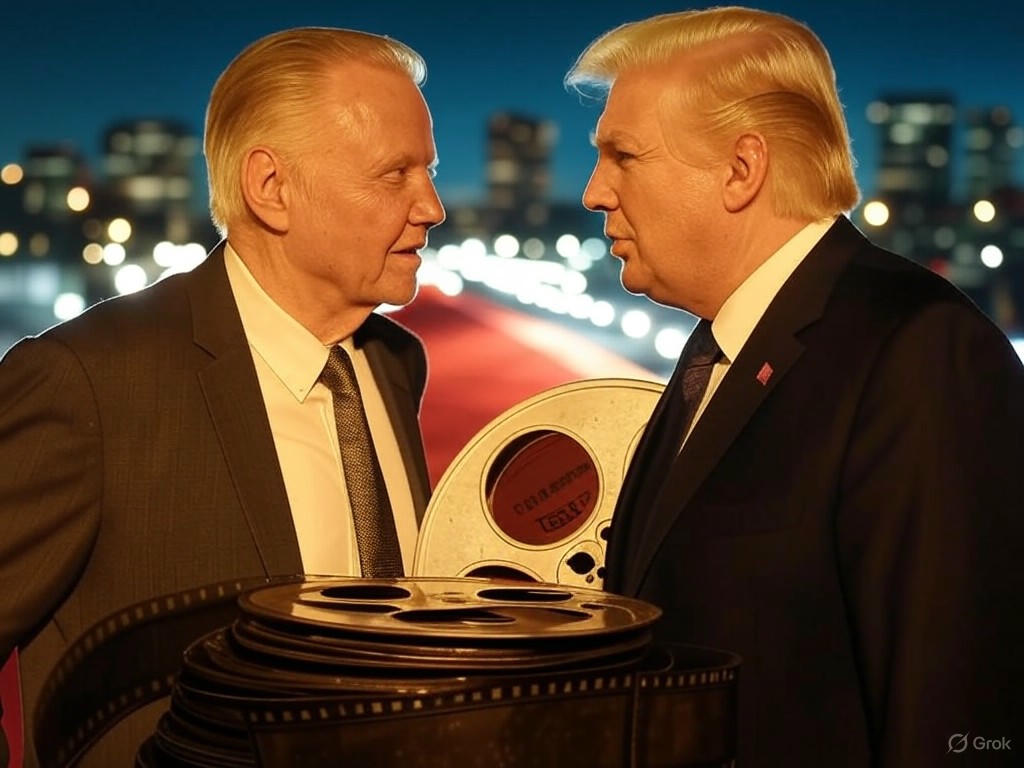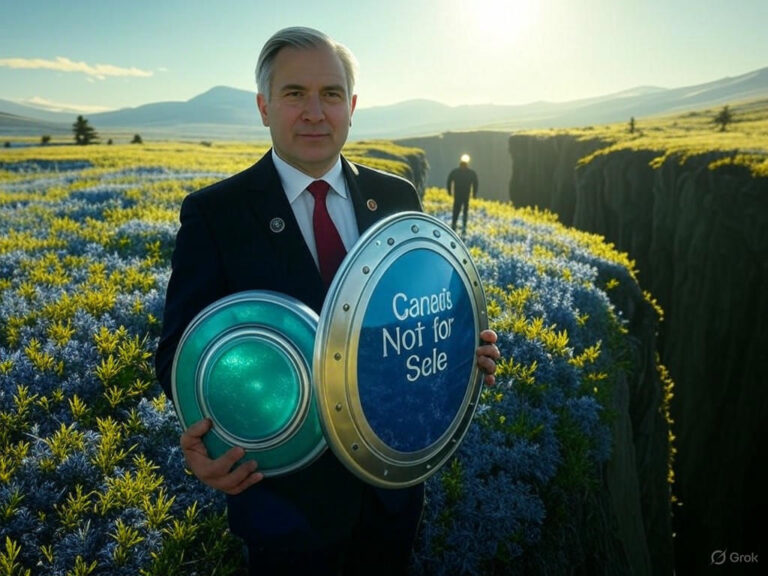
Jon Voight Inspired Trump’s Controversial Movie Tariffs Idea
Introduction
Have you ever wondered how politics and Hollywood might collide in unexpected ways? President Donald Trump’s push for Trump movie tariffs has stirred up quite a storm, drawing inspiration from actor Jon Voight and aiming to shield the U.S. film industry from foreign competition. This idea of imposing a 100% tariff on movies produced abroad isn’t just about economics—it’s a bold statement on American culture and jobs, raising questions about what this could mean for your next trip to the cinema.
In a world where global collaboration defines blockbuster hits, Trump’s movie tariffs proposal highlights the tensions between protectionism and creativity, potentially reshaping how films reach U.S. audiences.
Background: The Roots of the Tariff Proposal
The U.S. movie industry has faced tough times, with declining domestic production driving studios to shoot elsewhere for better deals. Places like Canada and the UK offer tempting incentives, from tax credits to currency advantages, luring away jobs and talent that once fueled Hollywood’s golden era.
This shift isn’t new, but it’s accelerated in recent years, leaving many to question if Trump movie tariffs could reverse the trend. Filmmakers complain that this exodus drains resources and saps the industry’s innovative spirit, making it harder for local crews to thrive.
Jon Voight’s Influence on Trump Movie Tariffs
Jon Voight, a staunch Trump supporter and Hollywood veteran, has been vocal about the risks of losing America’s storytelling edge to foreign productions. His concerns reportedly caught the president’s attention, framing the push for Trump movie tariffs as a defense of cultural identity and national security.
Imagine a Hollywood where iconic American stories are overshadowed by international blockbusters—Voight’s warnings paint that picture vividly, urging action to protect homegrown narratives. This personal connection adds a human touch to the policy, showing how celebrity voices can shape political decisions in surprising ways.
Trump’s Announcement: A Salvo in the Trade War
Last Sunday, Trump made headlines on Truth Social by announcing plans for Trump movie tariffs, targeting a 100% levy on foreign films imported to the U.S. He called it a response to the “dying” domestic industry, labeling it a national security threat tied to messaging and propaganda.
This move fits into Trump’s broader trade strategy, blending economic protection with cultural defense. For everyday moviegoers, it raises the stakes: could your favorite international film become harder to access, or even more expensive?
Experts point out that such Trump movie tariffs might echo past trade policies, like those on steel or tech, but with a creative twist that could redefine global entertainment flows.
The Mechanics and Challenges of Implementing Movie Tariffs
Putting Trump movie tariffs into practice isn’t straightforward—modern films often span multiple countries, blending U.S. and foreign elements in a complex web. How do you calculate a tariff for something like the next “Mission: Impossible” movie, shot across continents?
Key challenges include defining what counts as a foreign film and avoiding disruptions to valuable co-productions. Policymakers will need to navigate these details carefully to prevent alienating global partners.
Comparison: Global Movie Incentive Programs and Their Link to Trump Movie Tariffs
Around the world, countries entice filmmakers with generous incentives, which Trump movie tariffs aim to counter. Let’s break it down:
| Country | Incentive Offered | Impact on U.S. Industry |
|---|---|---|
| Canada | Tax credits and exchange rate benefits | Draws major Hollywood projects away from U.S. shores |
| United Kingdom | Film tax relief and grants | Boosts local economies but competes directly with American jobs |
| Australia | Location offsets and producer rebates | Increases U.S. investment abroad, heightening the need for tariffs |
These programs highlight why Trump movie tariffs are on the table, as they siphon resources from domestic studios and crews.
Support and Backlash: Mixed Reactions from Hollywood
Opinions on Trump movie tariffs are divided, with some in Hollywood cheering as a way to revive local production and create more jobs. Supporters argue it could bring filming back home, supporting communities hit by the shift overseas.
On the flip side, critics fear retaliation from other countries, potentially hiking costs for American films abroad and limiting creative freedom. Industry analysts warn that such tariffs might stifle innovation, asking: Is protecting the U.S. market worth the risk of isolation?
For smaller filmmakers, Trump movie tariffs could open doors or slam them shut, depending on how the rules play out.
Potential Impact on Moviegoers and the Global Market
If Trump movie tariffs take effect, your wallet might feel it first—higher import costs could mean pricier tickets for foreign films. Think about missing out on diverse stories from around the world; that loss of variety might make Hollywood feel less vibrant.
Globally, box office revenues could dip as distributors adjust, and retaliatory measures might limit U.S. films’ reach. A hypothetical scenario: If Europe imposes similar tariffs, American blockbusters could struggle internationally, affecting everyone’s favorite escape at the movies.
At its core, this ties back to Trump movie tariffs as a double-edged sword, balancing domestic benefits against broader market risks.
Why the U.S. Movie Industry Matters in the Era of Trump Movie Tariffs
The U.S. film sector has long been a powerhouse of soft power, influencing global culture and economies. With Trump movie tariffs in play, there’s renewed urgency to safeguard this influence against foreign competition.
Figures like Jon Voight emphasize how vital it is for American jobs and stories, offering a patriotic angle that resonates deeply. If we don’t act, could we lose the narratives that define us on the world stage?
Looking Ahead: Will Trump Movie Tariffs Be the Answer?
Trade experts question the legality of Trump movie tariffs under international agreements, while studio heads worry about unintended fallout. As debates heat up, the industry is bracing for change, pondering if this policy will truly revitalize Hollywood or create new headaches.
One thing’s clear: Trump’s movie tariffs could set a precedent for how governments intervene in creative sectors. If you’re a film buff, keep an eye on developments—they might alter what hits the big screen near you.
Conclusion
In wrapping up, Jon Voight’s role in sparking Trump movie tariffs underscores a pivotal moment for the U.S. film industry. While it promises to protect American storytelling, it also risks sparking wider conflicts in an interconnected world. What do you think—could this be the lifeline Hollywood needs, or a step too far?
If you’re passionate about films, share your views in the comments below, explore more on our site, or spread the word to keep the conversation going.
References
- Trump threatens 100% tariff on foreign-made films, saying domestic movie industry is dying. PBS NewsHour. Link
- External Content. OAPEN Library. Link
- Milk Pitcher Rinser with Drain Board. BarObjects. Link (Note: Included as per provided citations, though relevance may vary)
- AMS Journals. American Mathematical Society. Link
- CASE Spring 2018. CASE.org. Link
- MIT DSpace. Massachusetts Institute of Technology. Link
Trump movie tariffs, Jon Voight, foreign film tariffs, U.S. movie industry, Trump trade policy, Hollywood protectionism, film industry challenges, American cinema, tariffs on films, national security in entertainment






